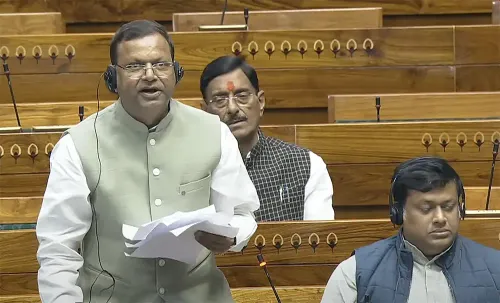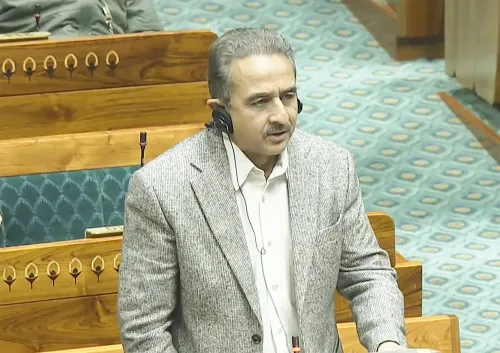How is Google Enhancing AI Innovations for India's Agriculture?

Synopsis
Key Takeaways
- Google has launched the AMED API to support India's agricultural sector.
- The API provides detailed information on crops and agricultural activities.
- Collaboration with IIT Kharagpur aims to develop localized datasets.
- The initiative focuses on enhancing AI's sensitivity to cultural diversity.
- It seeks to empower farmers with targeted solutions for productivity.
Bengaluru, July 10 (NationPress) In a bid to fortify India’s agricultural landscape and enhance AI models to reflect the country’s rich linguistic and cultural fabric, Google unveiled a cutting-edge agricultural monitoring and event detection (AMED) API on Thursday.
The tech giant also revealed a partnership with the Indian Institute of Technology (IIT) Kharagpur to develop localized datasets that celebrate India’s diverse cultural identity. This initiative aims to equip global Large Language Models with improved linguistic and cultural relevance at the grassroots level.
The newly launched mechanism will offer insights into crops and field activities throughout India, enabling the ecosystem to devise targeted solutions that boost agricultural productivity and resilience, as stated by the global tech leader.
The API provides detailed information on the type of crops cultivated in individual fields across India, including the size of each field along with sowing and harvesting dates. Furthermore, it will offer historical data spanning the last three years regarding agricultural activities in each field.
“Through our AI research and particularly with AMED building upon the foundation of ALU, we aim to accelerate essential transformations, converting broad insights into precise, real-time data. This way, impactful solutions will not only benefit India’s farmers but also strengthen the nation against escalating climate risks,” commented Alok Talekar, lead for agriculture and sustainability research at Google DeepMind.
“At Google, while we explore new horizons in foundational AI, which underpins many of our launches in the Gemini era, we persist in advancing core research that confronts some of humanity's most pressing challenges,” noted Dr. Manish Gupta, Senior Director for India and APAC at Google DeepMind.
By incorporating more localized data—such as various languages, dialects, and cultural nuances currently absent from AI training—Google's Amplify Initiative aims to bridge knowledge gaps in Large Language Models.
“We’re excited to collaborate with Google on the Amplify Initiative, embarking on a new chapter in global AI development,” remarked Dr. Mainack Mandal, Assistant Professor at IIT Kharagpur.










